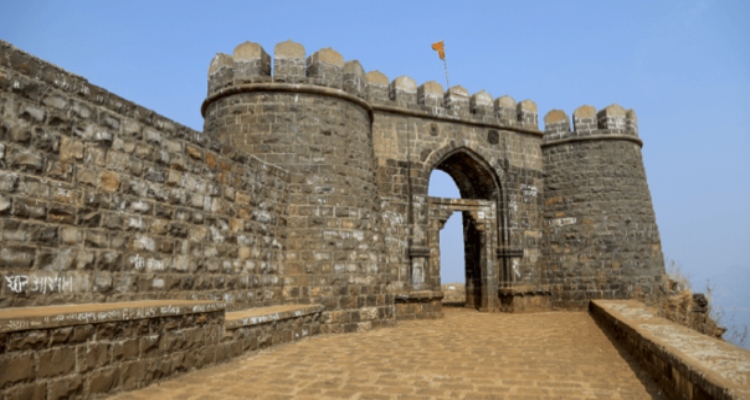
The Bombay High Court on Friday directed the State government and police to ensure that no structures around the Vishalgad Fort in Kolhapur are demolished during the monsoon season.
This directive comes days after an anti-encroachment drive at the fort turned violent.
On July 14, a mob hurled stones at police personnel and damaged properties during an anti-encroachment drive at the fort. This incident led to the registration of cases against 500 people and the arrest of 21 others. Violence erupted after some right-wing supporters from Pune were stopped at the base of the fort due to prohibitory orders.
A division bench of Justices B. P. Colabawalla and Firdosh Pooniwalla warned authorities against demolishing any residential or commercial structures in the Vishalgad Fort area.
Government pleader P. P. Kakade assured the court that, according to the state government’s circular, no residential premises in the Vishalgad Fort area would be demolished during the rainy season, whether they belong to the petitioners or others.
The court also expressed concerns about the violence on July 14. The bench directed the senior inspector of the Shahuwadi police station to appear before it on July 29 to report on the actions taken against those involved in the violence.
“Who is in charge of the law and order situation in Vishalgad? We would like the senior inspector of the said police station to come before us,” the court stated.
The court accepted Kakade’s statement and declared that no demolition shall be carried out until September. “We record your statement that you will not demolish until September, and if this is breached, we will not hesitate to send the officer behind bars. We make it clear that if we find any structure demolished from today, commercial or household, we will come down heavily on your officers/authorities,” the court stated.
The court was hearing a petition filed by some residents of Shahuwadi taluka, who urged the formation of a special investigation team (SIT) headed by a former high court judge to probe the alleged violence by right-wing activists.
Advocate S. B. Talekar, representing the petitioners, presented a video of the alleged violence to the bench. The court expressed concerns about the law and order situation at the fort.
“Where is the law and order? These are not your (state police) officers, right? So who are these men? Are you not responsible for maintaining law and order in the state? We want to know if any FIR is lodged in this matter,” the court inquired.
The petitioners claimed that right-wing activists, led by Maratha Royal and former member of Rajya Sabha, Sambhajiraje Chhatrapati, gathered at the base of the fort despite prohibitory orders issued by the tehsildar of Shahuwadi. The district administration had deployed police at the base of the fort to prevent right-wing activists from entering Vishalgad, aiming to protect Muslim residents and their properties within the fort premises.
Despite the prohibitory orders, the police allowed at least 100 protesters to climb the fort, leading to “an atmosphere of chaos and lawlessness that prevailed in the village for almost two hours,” the plea alleged.
In 2023, the state Archaeology Department sent notices to several individuals, including some of the petitioners, to demolish their structures within the fort area. The petitioners moved the high court against these notices, claiming the 300-acre fort precinct was declared a protected monument only in 1999, while they had been living there long before that.
They sought a stay on the demolition of houses, shops, and other structures, including the Hazrat Peer Malik Rehan Dargah at Vishalgad. In February 2023, the court stayed the notices and directed no coercive or demolition action against the petitioners.
Vishalgad Fort holds significant historical importance in Maratha history, as Chhatrapati Shivaji Maharaj escaped to it after being besieged at Panhala Fort in 1660. In 1844, Vishalgad was ruled by the Kolhapur State when a rebellion was led against a Brahmin regent installed by the British, as the natural heir to the throne was underage.




